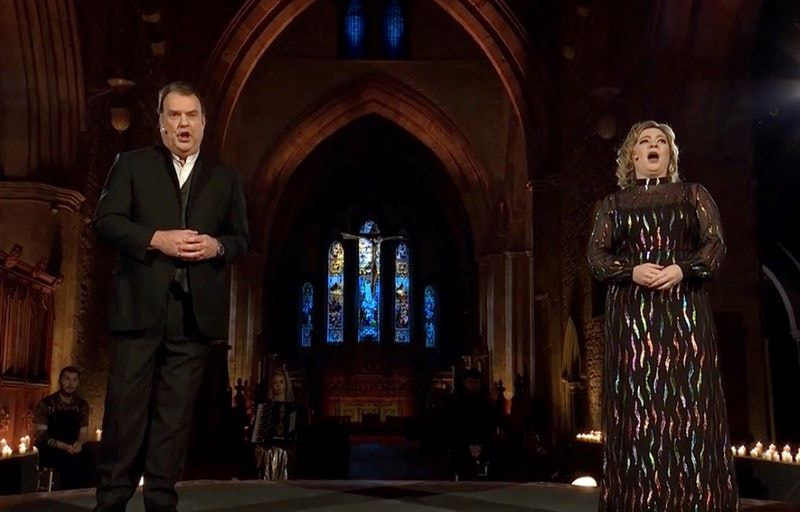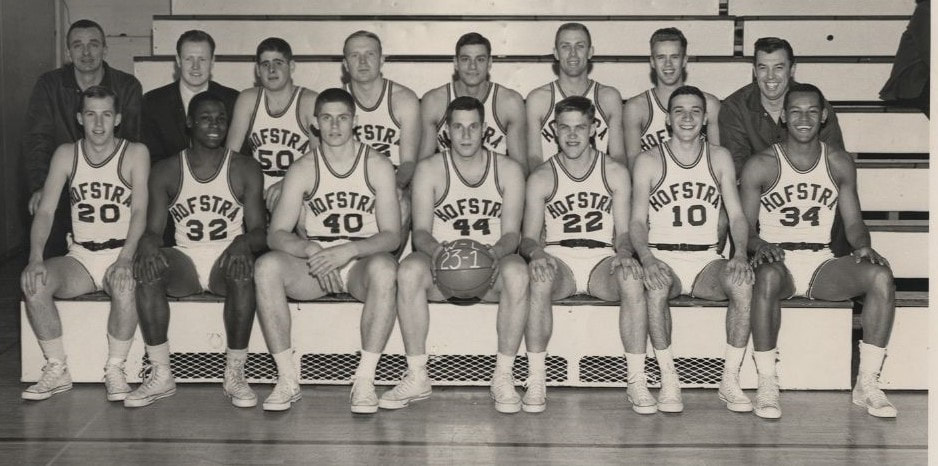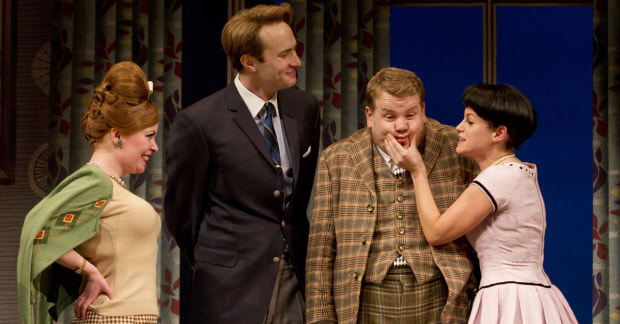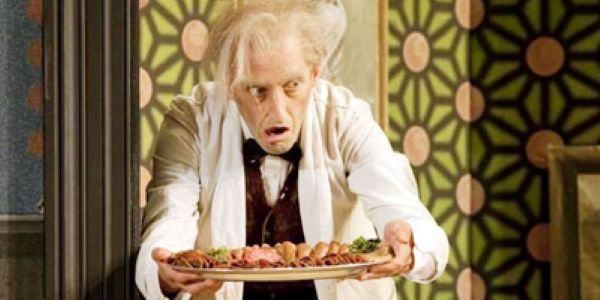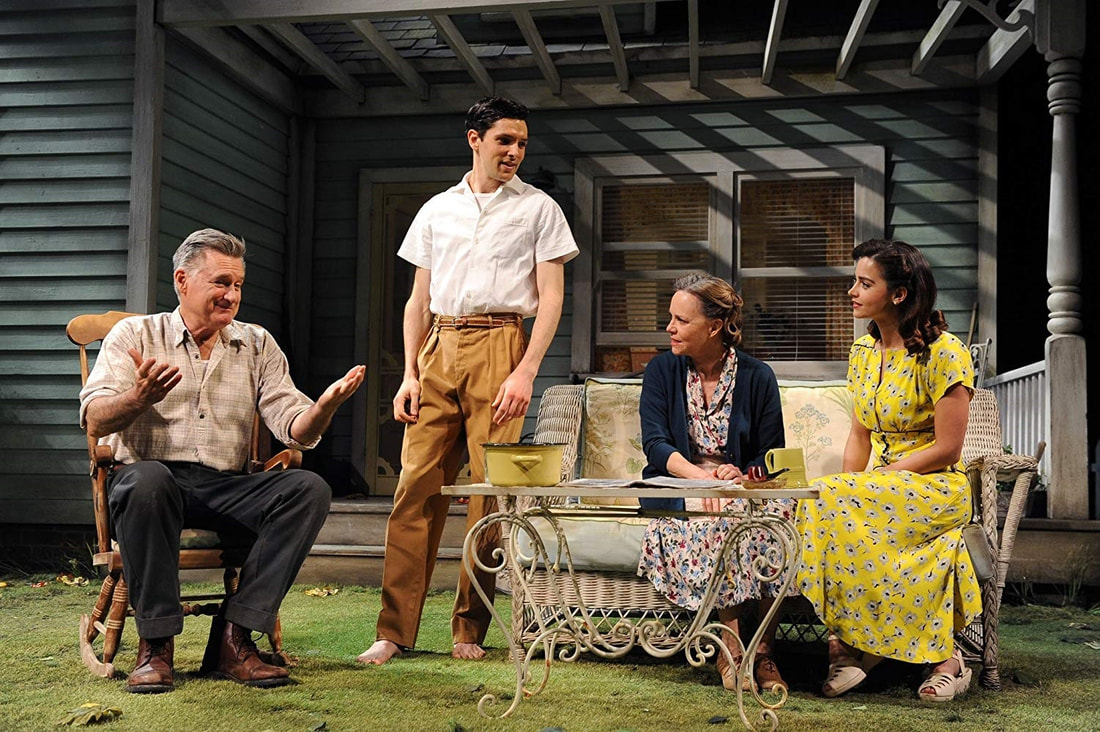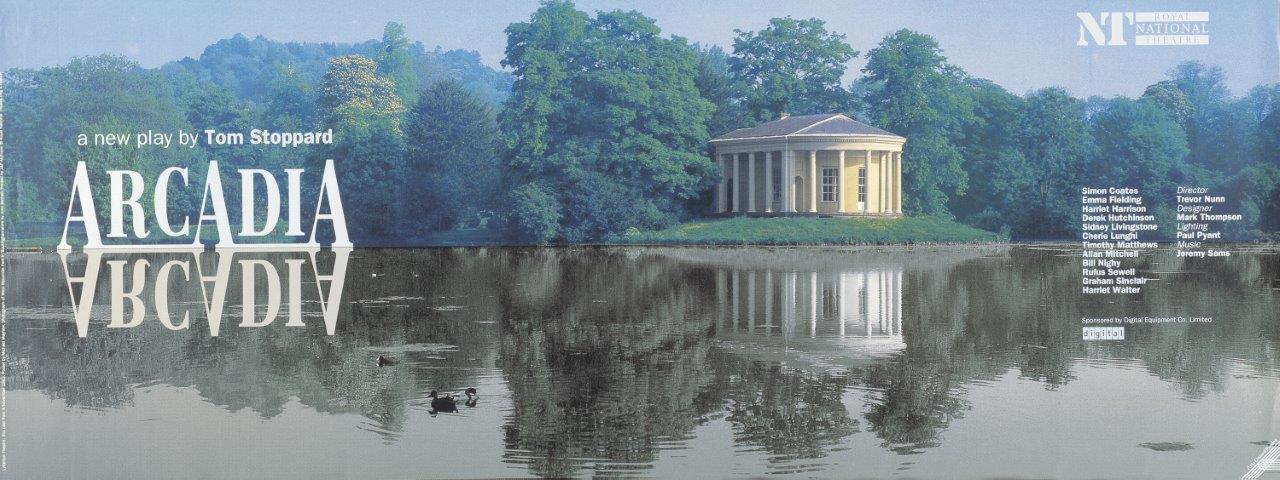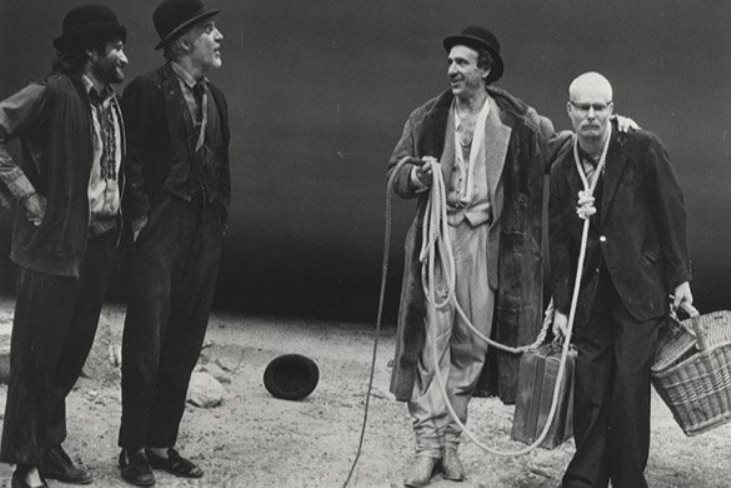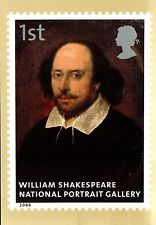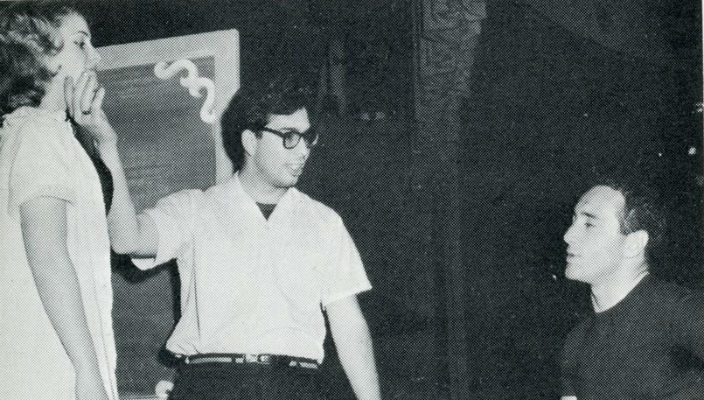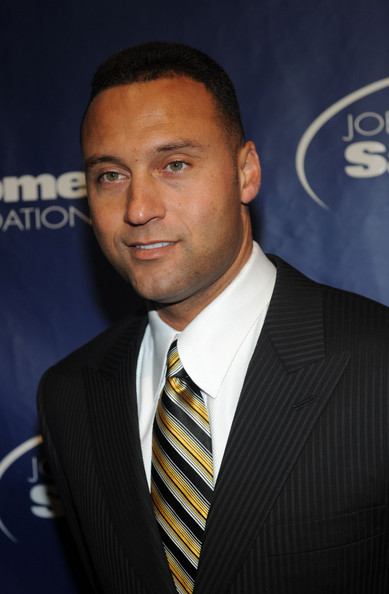|
There are people out there, breathing a killer virus at you. There is also a ton of snow on the ground where I live. My suggestion: try tuning out the Lame-Duck Orange Sicko for a day. I did it over the weekend. Good Stuff on everywhere. . I started with a link from a friend known as The Cork Lady. (Ireland, that is.) She and her husband sent me a link to a concert via the shut-down Metropolitan Opera -- Bryn Terfel with a holiday concert from his native Wales. What a wonderful surprise: the concert (with no audience) was in the Brecon Cathedral – a place we know and love, in the highlands above Cardiff, The vivid stained-glass brought back memories of a beautiful summer evening, still light outside, our friend and host Alastair (like all Welsh men) singing in a chorus. While Terfel and a talented cast took turns, my mind drifted to Brecon in long-ago summers --sheep being marshalled by border collies, the jolly sound of tourists on canal boats from the nearby Usk River, trips to upscale pubs along the canal, and Alastair going to Brecon market to buy lava bread (pungent, allegedly edible seaweed from the coast.) Not exactly Christmas memories, but lovely memories nonetheless. At 5 PM, another link – this one via the Pulitzer-Prize winning poet, Stephen Dunn, my friend from his days as a zone-busting shooter for Hofstra College. No. 20 was known as Radar on a 23-1 team. Radar writes as he shot – smoothly -- his latest book, Pagan Virtues, just out. Stephen’s poetic aim is still perfect but his voice does not permit him to read his own work these days. In a weekly web poetry reading, called LitBalm, some of his new work was read, and read well, by his friend Indran, while Stephen listened in one of the squares on the laptop grid. Keep lofting these jumpers, man. 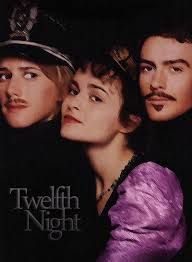 They figure it out They figure it out At 9 PM, we turned on the local PBS station, Channel 13, with its Saturday-night feature -- a classic, or classy, movie (sometimes, inexplicably, displaced by drippy oldie concerts). But not Saturday. Mercifully, there was the Trevor Nunn movie version of “Twelfth Night,” from 1996, Shakespeare’s gender-bender comedy, with a cinematic shipwreck and looming Cornwall hills and castles and Helen Bonham Carter falling in love with a saucy emissary with a highly dubious mustache draped across her kissable upper lip. The cast, as in any English rendition of Shakespeare, was marvelous, but let me praise two: Nigel Hathaway as Malvolio, the resident mansion bully, and Ben Kingsley, for goodness’ sakes, as an omnipresent troubadour (with a really nice voice, his own; it turns out that Kingsley was once urged to pursue singing by his pal, John Lennon.) (We recently saw a stage version of Twelfth Night via the marvelous National Theatre's at-home series, prompted by the pandemic. In that version, Malvolio is female, played by Tamsin Greig, and her comeuppance seems more cruel than Hawthorne’s.) During the final scene Saturday night, when everybody finally figured everything out, I had tears in my eyes. Good Shakespeare does that to me. The antidote for tears came nine – count ‘em, nine – minutes later, on “Saturday Night Live,” the last new one for a month apparently. The host was Kristen Wiig, one of the all-timers, visiting her old haunts. Her opening bit was singing the wintry standard “My Favorite Things,” and when she botched the lyrics, she was joined by another all-timer, Maya Rudolph, who also botched the lyrics, and was in turn joined by the current all-timer Kate McKinnon. Regarding McKinnon: I am watching SNL more in my “retirement” than I ever did, and am totally enthralled with McKinnon In the all-time web ratings of SNL females, I propose St. Gilda as first, and Tina Fey as second (those laser eyes, looking right at you), and McKinnon now ranks third, with me. I love her versions of Rudy and Dr. Fauci and that fuzzy little attorney general, Jeff Sessions, and McKinnon also aces some dark-side female roles, throwing off heat in all directions. How Shakespearean.  That brings us to Sunday. The far-flung family of Anna and the late Kate McGarrigle is staging a virtual reunion, Sunday, all over the world, apparently. It will be streaming (at a price) and available for two weeks, starting at 3 PM. The cast includes longtime backup Chaim Tannenbaum, third-sister Jane McGarrigle, and other staples of that wonderful time. I will catch it, and think of Kate. * * * Also, Nick and Teresa Troiano Masi (Terry and I worked on the paper at Jamaica High) have a grown daughter, Terri Dierkes, who is a cantor in a church in Connecticut, and a leading member of a lovely Christmas concert, which aired Sunday. Details at: https://www.musae.me/terridierkes/experiences/876/an-enchanted Finally, ongoing, for a season of great plays in our homes, the National Theatre is showing 12 filmed plays, for quite modest fees. We've seen about half in recent years. Wonderful stuff. https://www.ntathome.com/products?webSyncID=15a5de53-1723-d49e-1058-0eb4b6cd67b0&sessionGUID=2739e281-ec60-d680-c4d7-0b68a7328c91 * * * There’s a pandemic out there. Nasty weather all over. Stay safe til the vaccines get here. You can't watch The Dangerous Fool every second. Ride it out. Stay safe. Happy Holidays to all.  Smirk. Earring. This man wrote "Twelfth Night." Smirk. Earring. This man wrote "Twelfth Night." Today, Thursday, is the anniversary of William Shakespeare’s birth in 1564, or his death in 1616, or both. Preparing for this double event, I have just finished reading “Shakespeare,” by Anthony Burgess, with lavish illustrations, a treasure that seems to have been a college textbook of one of our children. My lasting impression of Shakespeare is the so-called Chandos portrait, believe to be of the bard, but without proof. All I know is that when you walk into that room in the National Portrait Gallery (closed now for three years of repairs) you see the smirk on somebody’s face, and an earring glittering on his left ear. I am more than willing to assume it is Shakespeare, thinking of a good writing day he just had, or an assignation ahead of him, or both. My fascination with Shakespeare stems from having attended Hofstra College from 1956-60 when the absolute best thing on campus (with all due respect to our great sports teams) was the annual Shakespeare Festival, on the stimulus of the school president, Dr. John Cranford Adams, a major authority. The school had a Globe theater, installed every March. I can still see an undergraduate named Francis Ford Coppola with a hammer tucked into his overalls, working on the sets, and I see a classmate – now known as Lainie Kazan – playing one bawdy role or another. For all the drama classes I took, and the performances I witnessed in the John Cranford Adams Playhouse, I am still learning about Shakespeare. Burgess quotes Rev. John Ward’s notebooks as saying that, in retirement in Stratford, Shakespeare had a “merrie meeting” with Michael Drayton and Ben Johnson and ate too many pickled herrings and drank too much Rhenish wine. “He sweated, took cold and died.” He was 52. Lately, much has been made that Shakespeare wrote “King Lear” in 1606, during a major plague. (The Guardian had an article yesterday, citing James Shapiro as the source, and that more than works for me.) https://www.theguardian.com/stage/2020/mar/22/shakespeare-in-lockdown-did-he-write-king-lear-in-plague-quarantine If he could write during a plague, what are mere scribblers like me doing with our time? Blogs? I don’t think so. Burgess is very good on innuendo and gossip. In this book I learned that Shakespeare took a room for many years in a place run by one Marie Mountjoy. Given my dirty mind, I can only think that if she did not exist Shakespeare would have created her. Also, I don’t know why it took me so long to discover that a noted writer named William Davenant was rumored to be the illegitimate son of Shakespeare, who often passed through an inn in Oxford where Davenant’s attractive mother worked as a hostess. Davenant himself seems to have advanced the rumor. Shakespeare clearly lived a busy life, however slight the documentation, and I have no doubt he wrote all the plays attributed to him. Today, my wife and I plan to watch the latest offering by the National Theatre of London, currently closed down, of course. “Twelfth Night” was filmed during a live performance in London recently, and we saw it at the Kew Gardens Cinema in Queens. One of the quirks of this version is that Malvolio has switched genders from male to female (Tamsin Greig.) Given that young men played all the female roles during Shakespeare’s time, this is not such a big leap. Looking out from the Chandos portrait, the smirk and the earring seem to twinkle even more brightly. Shakespeare lives. * * * (Link for "Twelfth Night" below, 2 PM Eastern.) https://www.timeout.com/london/theatre/twelfth-night-39 (The trailer for "Twelfth Night," starting today at 2 PM, Eastern. Donations are welcome.) In the grip of terror and incompetence, a few laughs wouldn’t hurt.
Nearly three hours of slapstick are being sent our way this week by the National Theatre in London – for free, unless you are inclined to donate. Thursday was Opening Day, and I looked forward to it the way I normally look forward to baseball’s Opening Day. Baseball teams normally open the season with their best pitcher; NTLive began with the smash hit from 2011, “One Man, Two Guvnors,” starring James Corden as an oaf in a checkered suit, willing to do almost anything for a few bob here and there. Starving, he falls in with a bunch of grifters and mugs and hustlers and dimwits, the likes of which I had not seen since the last televised Cabinet meeting, except those blokes in DC are not funny at all. The plays originated from the three-theatre shrine on the Southbank – our favorite place in England. My wife has been known to see two plays a day, all week long, while I was laboring at Wimbledon. In recent years, a selection of the best plays has been available as NTLive in movie houses around the world, for a price. But with London shut down, NTLive found a way to send a selection to the huddled world, via the web and outlets like YouTube. I could not locate it on the YouTube site, which contained a thousand things I did not want to watch and no apparent directory. But I was easily able to pull up “One Man” on my laptop. Corden came into my periscope only recently, through his romp in “Carpool Karaoke” with Paul McCartney – on Penny Lane and other holy places. That inspired us to catch “One Man, Two Guvnors,” when it popped up in Patchogue, Long Island, last fall, one day only. We roared as Corden performs pratfalls and inter-acts with the audience – including one charming plant – as his character escapes violence from his two raffish guvnors, as he ogles the pub food and also a new lady friend named Dolly. This collection of characters has been adapted by Richard Bean from the original Servant of Two Masters (Italian: Il Servitore di Due Padroni), a 1743 Commedia dell'arte comedy play by Carlo Goldoni. There is a bit of everything in “One Man, Two Guvnors” – various thugs, a ham actor, an old-fashioned skiffle band, a scheming woman in drag who knows how to brandish a knife, a charming little breakout of Calypso steel band, and a hapless old waiter – 86, with the shakes -- who keeps getting knocked down the stairs or hit by a cricket bat. Gets your minds off the troubles for a bit. NTLive, bless its heart, has brought this diversion into our living rooms. Without further ado, here is the link to the show: https://www.youtube.com/watch?v=XzqcRwWVv8k * * * “One Man, Two Guvnors” is available at home until next Thursday, followed by weekly appearances of “Jane Eyre,” “Treasure Island” and “Twelfth Night,” with Malvolio as a woman, so 21st Century. It's almost always terrific. We have already seen “Jane Eyre” and “Twelfth Night,” via NTLive, in The Kew Gardens Cinema,” in my home borough of Queens. NTLive, we owe you, Oh, there is a way to donate from The States. We just did. https://www.nationaltheatre.org.uk/ The other day we saw a gripping American play, about dishonesty.
It made me think about: --- The current baseball scandal? --- Boeing? --- The former representative going away for insider stock selling? --- “Politics.” --- All of the above? The play is “All My Sons,” written by Arthur Miller in 1947 about a Middle American factory that shipped flawed parts for planes during World War Two, with disastrous consequences – first for the pilots, then for the people who ran the factory. We saw the play on the screen at the Kew Gardens Cinema in my home borough of Queens, part of the National Theatre Live series, at movie houses all over the world. We caught the play while the baseball scandal continues to unravel, at the cost of dishonored championships, ruined careers and realistic suspicions about other aspects of Major League Baseball – supersonic balls in orbit last season, plus Commissioner Rob Manfred’s threat to blow up the historic network of minor-league baseball. Baseball’s grubby face was on my mind as we went to see the important American play from the landmark Old Vic in London. The two leads were Americans: Sally Field, as a midwestern Mother Courage trying to keep the lid on her cover story, warning her husband to “be smart,” and Bill Pullman, with his large, open, American male physicality, reminding me of the aging Ted Williams. The rest of the cast is British -- terrific actors sometimes a tad off in American inflection or body language. The back-yard setting is a bit too folksy, post-war middle class, for a family with a factory that prospered during the war. But you get into it, way into it. The older son disappeared in aerial action during the war. The younger son is trying to live in the vacuum of loss. And the family that used to live next door has been broken by the jailing of the other partner for malfeasance with the faulty parts. As we sat in the movie house in Queens, we thought about Boeing, with its two new planes that crashed recently, killing hundreds of people, followed by superb reporting in The New York Times about wretched management and disgruntled workers who knew the planes were flawed. But the planes had to be delivered so shareholders could have a a new vacation home, a new luxury car, a new wife. How American. How courant. Money is at the core of the play. The father takes over the stage (all arms and shoulders, like Ted Williams giving batting tips) as he tells his son (returned from combat) that he has held the factory together so he can pass it on to the son, who is known to neighbors as idealistic. There will be money. That very day, in upstate New York, former Rep. Chris Collins was sentenced to 26 months for passing along inside information that a stock he had championed was about to fall apart. Collins, in tears, said he broke the law for his son, so there would be money, for the family. My wife and I sat in our favorite movie house, watching Arthur Miller’s post-war statement take very human form. My eyes teared up as I watched these very real people – the older couple trying to “be smart,” the son trying to make it all right by marrying the girl who used to live next door. When we left the movie house, in the funky old section of Kew Gardens, it was 2020, not 1947. Impeachment was in the air. People were still sending flawed airplanes into the air, all in the name of family. The American dream. Arthur Miller would feel right at home. * * * National Theatre Live website: http://ntlive.nationaltheatre.org.uk/ Guardian review of "All My Sons." =https://www.theguardian.com/stage/2019/apr/23/all-my-sons-review-old-vic-london-sally-field-bill-pullman-jenna-coleman Former Rep. Chris Collins sentenced to 26 months: https://www.nytimes.com/2020/01/17/nyregion/chris-collins-sentencing-prison.html?searchResultPosition=3 Tyler Kepner's latest great piece on the Houston Asterisks: https://www.nytimes.com/2020/01/18/sports/houston-astros-cheating.html?searchResultPosition=1 Recent article on suspicions by Boeing workers, by Natalie Kitroeff: https://www.nytimes.com/2020/01/09/business/boeing-737-messages.html?searchResultPosition=4 It's amazing what you can find on line, from people you don't even know, who are updating ancestry information. New information pops up, virtually day by day.
My wife and I were discussing her ongoing genealogy research of her maternal ancestors in Lancashire, England – so many relatives with the same names, from century to century. People with the same first and last names pop up in Manchester....or Liverpool....or Rhode Island....or Baltimore....or Kentucky.....or Australia....and some of them even back to England. She also researched my mother’s ancestry, in the same region -- centuries of women named Mary and Jane and Elizabeth (right out of the 16th Century history books) plus men named John and James and George. No direct links between families, at least not yet. We agreed there could be a play about the overlapping of the centuries – when suddenly we remembered that just such a play has already been written. “Stoppard!” one said. “Arcadia!” the other said. I refreshed my memory about "Arcadia," and the first thing I noticed was that the playwright, Tom Stoppard (Born Tomás Straüssler on July 3, 1937 in Zlín, Czechoslovakia) is having a birthday soon. Happy birthday, with thanks for one of the most beautiful evenings we have ever spent in the theater. It was July of 1993, and I was not scheduled to write at Wimbledon that day, so I started to duck out of the press tribune around 5, only to hear the cutting tones of my beloved colleague, Robin Finn, alerting the entire press crew: “So, Giorgio, the Missus has theater tickets tonight, huh?” Well, yes. Marianne had picked up tickets for the Stoppard play at the National Theatre on the South Bank, our favorite place in London, or maybe the world. Very often, she would see two plays in one day. This night we watched a play about a country estate in Derbyshire in 1809, where a man is tutoring his precocious charge, just entering her teens. The plot is complicated – Stoppard’s always are – but the main theme is about the maintenance of the mansion; to change or not to change? The action shifts to 1990 or so, when other humans are discussing the very same country estate. (Makes you think there just might always be an England, despite its “leaders.”) The centuries rock against each other like tectonic plates but the twains do not meet until – spoiler alert – the very last scene, when the two generations mingle on the stage. Stoppard can be highly intellectual and abstract, but suddenly my eyes were gushing, tears from nowhere. This is the best thing the theater can do – bring you to your knees, in emotion. My fine drama teachers at Hofstra taught us about “catharsis” – from the Greek, the cleansing, the purging. “Arcadia” made us think and feel deeply. In 2009, The Independent asked if Arcadia was the “greatest play of our age.” One review described “Arcadia” as “a serious comedy about science, sex and landscape gardening.” I also remember a murder mystery and physics mixed in. My best to you, sir. Perhaps you are writing? * * * More about “Arcadia:” https://www.independent.co.uk/arts-entertainment/theatre-dance/features/is-tom-stoppards-arcadia-the-greatest-play-of-our-age-1688852.html https://www.theguardian.com/theobserver/1993/apr/18/features.review7 https://literature.britishcouncil.org/writer/tom-stoppard In the fall of 1988, our son and I went to Lincoln Center to see a revival of "Waiting for Godot."
Robin Williams and Steve Martin were quite fine in the two lead roles, and F. Murray Abraham was properly domineering as Pozzo, leading his abject slave, Lucky, played by the master kinetic actor, Bill Irwin. I was thinking of that master-slave relationship Friday night when The New York Times broke the story that the FBI had begun an investigation in early 2017 of the apparent master-slave relationship between Putin and Trump. www.nytimes.com/2019/01/11/us/politics/fbi-trump-russia-inquiry.html In the real-life version, Lucky snarls and yaps at just about everybody else, but when Pozzo fixes his Lubyanka-basement glare at him, Lucky rolls on the floor and whimpers. How did poor Lucky come to be led around on a leash? Beckett does not say. I am hoping this will soon be explained to us by Robert S. Mueller, III. Barack Obama Gave a Speech on Television.
I had tears in my eyes. I was sad for what we have surely lost – an intelligent, verbal president who speaks of values. When the former president mentioned Michelle Obama and their daughters, I felt empty, as if thinking of good neighbors who have moved away. He delivered a civics lesson at the University of Illinois, urging young people to vote -- clearly political but so rational and timely that it rose above partisanship, to become a warning: Where have we gone? What have we done to ourselves? He cited the white-power people who stomped in psychic jackboots through Charlottesville, Va., in 2017, in plain daylight, not even bothering with hoods. He evoked the man who is still president as of this writing, who claimed there were good people on both sides. Barack Obama asked, plaintively: “How hard can that be? Saying that Nazis are bad?” My wife said that should be a bumper sticker. A president who can write and read and speak his native language. Imagine. On Friday in Illinois, he was at his best in the national and global bear pit -- Laurence Olivier performing Shakespeare’s speech for Mark Antony in “Julius Caesar:” “So are they all, all honorable men.” The previous president spoke against stereotyping people, saying he knew plenty of whites who care about blacks being treated unfairly, saying he knew plenty of black people who care deeply about rural whites. Then he added: “I know there are evangelicals who are deeply committed to doing something about climate change. I’ve seen them do the work. I know there are conservatives who think there’s nothing compassionate about separating immigrant children from their mothers. I know there are Republicans who believe government should only perform a few minimal functions but that one of those functions should be making sure nearly 3,000 Americans don’t die in a hurricane and its aftermath.” Like Shakespeare, he was making a bigger point: there is a malaise loose in the land. At one point he said Donald Trump is “a symptom” and not “the cause.” In other words, Trump is an illness that has been coming on for years. I nodded grimly, in my den, thinking of the McConnells and Ryans, who have sat by maliciously, allowing a Shakespearean character, the worst of the buffoons, the worst of the tyrants, to tear things apart. Was I imagining, the other day, that these politicians were squirming in their seats in the cathedral, along with their fidgety wives, listening to the orations for John McCain, wondering if anybody would ever confuse them with patriots? On Friday, Barack Obama gave notice to the young people of many shades and facial characteristics in his audience: you are the largest population bulge in this country, but in 2016, only one in five of you voted. “One in five,” the playwright emoted, enunciating his own words. “Not two in five or three. One in five. Is it any wonder this Congress doesn’t reflect your values and your priorities? Are you surprised by that? This whole project of self-government only works if everybody’s doing their part.” The television showed the college students nodding, or averting their eyes. Will they remember this warning at mid-term elections in early November? So many distractions these days. So easy to get lost, twiddling thumbs in the social media. Shakespeare was borrowing stories from earlier centuries but Barack Obama has been active in public life. On Friday he returned to the stage to deliver artful words, dramatically delivered, surely from the heart. How many reminders, how many chances, do we get? *** The transcript of Barack Obama’s speech (really worth reading): https://www.vox.com/policy-and-politics/2018/9/7/17832024/obama-speech-trump-illinois-transcript They are a matched pair, Bob Dylan in Oslo for the Nobel Prize, and Dario Fo, who already had a Nobel Prize, on his way to the Great Beyond for a reunion with Franca Rame. Dylan and Fo, a couple of troublemakers. Dylan upset the establishment with his macaw singing voice and his confrontational lyrics; Fo upset entire nations with his anarchic words. Which one of them wrote, “Something is happening, but you don’t know what it is, do you, Signore Rossi?” My wife saw Rame, a true survivor, on stage in London a few decades ago, performing a short Fo play about a woman locked in her apartment by her husband, wearing a shortie negligee, ironing endlessly. It was an allegory. After that, we cheered when the United States lifted a 15-year ban on Fo and Rame for their political views. (What, you think Trump invented this stuff?) They were heroes to us for thumbing their noses at convention, and hardship. Dylan was more accessible here in the Stati Uniti, honking on his harmonica, rasping into the microphone, an outsider. I have never met Dylan, exactly, but I annoyed the heck out of him in 1974 when I covered the great tour by him and The Band. Dylan did not do interviews but Bill Graham, the great promoter, slipped me into a highly secure sound check in an empty Madison Square Garden. I mean, even ushers and security people had to wait outside. But I was crouched down behind a chair, observing Zim as he checked out the acoustics and the lighting, uneventfully, as I described in my early space-holder story. That evening, the joint was throbbing, like when Clyde and Willis were at their best. Dylan came out on stage and in a rare aside to the audience, he rasped it was “An honnuh to be here.” Wow! Dylan speaks! That night, after a knockout show, Dylan was back in his hotel suite, perusing the early edition of the Times. He reached for the phone and called David Geffen, the uber-promoter, in Europe, to report: He Had Been Observed. Dylan was so mad that the next day Graham sidled up to me and said he had to tell them that I sneaked in there on my own. Absolutely, Bill, I said. I’ve always been proud that an innocuous little early story could spur Dylan into phone rage. Now he is a Nobel winner, deservedly, for all the songs he gave us. The best description Dylan was written by Joan Baez in Diamonds and Rust,” describing their love affair between “the unwashed phenomenon” and “the Madonna” who was his for free. One of the most romantic sentences in pop music: “Speaking strictly for me We both could have died then and there.” Then Baez sums up her vision of Dylan: “Now you're telling me You're not nostalgic Then give me another word for it You who are so good with words And at keeping things vague Because I need some of that vagueness now It's all come back too clearly Yes I loved you dearly And if you're offering me diamonds and rust I've already paid.” Dylan and Baez, matched in their temporary way. I like to think of Fo and Rame, performing again. He was born April 23, 1564, this much we seem to know.
Whoever he was, he is our patrimony, the synthesist of the English language, creator not just of Lady Macbeth and Falstaff but of Emma Thompson and Monty Python, Margaret Thatcher and Boris Johnson. He saw it all coming. I was introduced to Shakespeare in the late winter of 1956-57, the tail end of the basketball season, when I was the student publicist at Hofstra College. The gym was commandeered by a new cast of characters. Instead of housing Butch Van Breda Kolff and his motley band, the gym now held Shakespeare and his rollicking crew. The annual Shakespeare Festival forced gym classes outdoors or into the Quonset Hut, and caused Butch’s basketball team to finish on the road. Workers began to assemble what looked like a mix between a Lincoln Log and Tinker Toy construction. Beams and pillars and floors and balconies were lugged into the gym, and put together like a giant puzzle. The Globe Theatre was the pride of President John Cranford Adams, a Shakespearean scholar, a trim older man with a vaguely British accent and wardrobe somewhat out of place in this informal suburban world. (The next year the festival moved into the new John Cranford Adams Playhouse, still the secular temple of my alma mater and soon to be refurbished, thanks to a benefactor.g) One of the 1957 stagehands was a fellow freshman – Franny, he was called, in those days, not Francis Ford Coppola. He was a legend for not wearing the ratty gym outfit or olive-green ROTC outfit (years later he told me he had polio as a child and was excused from both.) Instead he wore a workman’s overalls, baggy, with pockets containing hammer, screwdriver and other implements of construction, preparing not just the featured play, “As You Like It,” but also odd little morality plays and musical concerts. One afternoon I watched a performance, as students I had seen on campus wore gaudy ruffles and low-cut gowns, speaking a language so easy to parody, indecipherable at first but as the ear became accustomed to the cadence, perfectly clear, the wit, the drama, the poetry. I cannot claim I loved it, had some kind of metamorphosis, but this was as good a reason as any to attend a college heavy on the liberal arts. Out of nowhere, William Shakespeare became my boot camp for language, my basic training for the mind. Shakespeare has lasted this long, as I follow the academic debates about his journey from Stratford to the South Bank to everywhere in the world. In my years covering Wimbledon – all right, now I will admit it – I would sometimes find a way to join my wife at the National Theatre or the dismal claustrophobia-inducing Barbican. And one wet June evening in 1997, after I had typed fast at Wimbledon, we bought groundling tickets and stood in the solstice downpour at the new Globe Theatre, watching Henry’s troops heading into battle, and we understood our job was to hiss and whistle at the French soldiers, and maybe toss the odd packet of crisps at them. Years ago, we wandered into the National Portrait Gallery and spied a man with an earring smirking out at the world. It is the so-called Chandos Portrait (for a previous owner) and the artist may have been John Taylor. The subject is said to be young Will Shakespeare, down from Stratford, to write and drink with his buddies and snag as many women as possible. I take the young man to be Shakespeare because his leer matches the knowing lilt of the plays and sonnets. Whoever and whatever he was, he doth endure. Happy Birthday, Dude. A good actor always knows his cues. The last loads of Super Bowl schleppers were being hauled back to civilization when Derek Jeter entered, stage right.
Jeter took batting practice on the field in Tampa Monday and said he was fine. Of course, he says that when he has broken bones. Funny thing. I was thinking of Jeter last Thursday while watching the current London production of Coriolanus, in our favorite movie house in Kew Gardens, Queens. It seemed to me that the star, Tom Hiddleston, resembled the Yankee captain: A star. A distant star. But a star, nonetheless. Probably not a good recommendation for the production, if your mind wanders like that. Hiddleston is popular with young audiences. (The Queens audience skewed decades younger than usual for the mid-week production, live from the UK.) We saw Ian McKellan play Coriolanus at the National Theatre in 1984, for goodness' sakes. McKellan was 45, an aging and properly arrogant soldier-survivor. Hiddleston looks like a star shortstop. With my mind wandering from this pop version of Shakespeare, I found myself hoping Jeter has one more good year left in him. This is no fun, even for somebody emphatically not a Yankee fan, to watch the wheels fall off one of the signature players of our time. Jeter has started the rallies, clapping his hands as he reached second base, standing up, staring back at the dugout, as if saying, “Next!” He retrieved a wayward baseball and retired a knucklehead who did not bother to slide. (One of my favorite columns:) http://www.nytimes.com/2001/10/26/sports/sports-of-the-times-slide-jeremy-slide-slide.html Jeter has also played an extremely dependable shortstop. He is the Yankee captain. He doesn’t give much of himself away, but he represents the team. Coriolanus would respect him. Is it too much to ask that Derek Jeter be healthy and productive for one more season, clapping his hands at second base and retiring knuckleheads? Plus, he knows his theatre. Football exits, stage left. The captain walks out on the field. |
Categories
All
|
